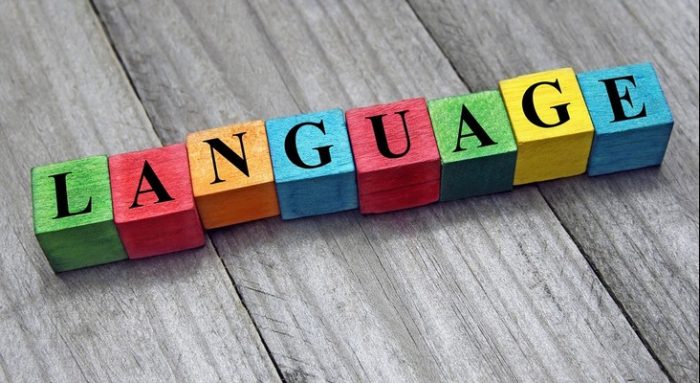BY ELIZABETH CHISOROM CHUKWU
Language is more than a tool of communication; it is a repository of history, culture, and identity. But language, too, has long been wielded as a weapon of conquest. From the moment European powers stepped foot on foreign shores, language became an essential tool in the colonial project. It was not just land, labour, and resources that were seized—indigenous tongues were targeted as well, erased or marginalised to ensure the dominance of colonial languages.
Today, even though the colonial empires have disbanded, the legacy of linguistic dominance persists, with English reigning as the global language. And while English has undoubtedly facilitated globalisation and broken down borders, it has also erected new cultural and linguistic walls that few acknowledge. If we dig deep enough, we will find that the status of English as a global language is not an accident but the byproduct of centuries of subjugation and exclusion.
This article explores the subtle ways in which language, particularly English, continues to uphold power structures rooted in colonial history. It seeks to ask: when the world prioritises English over all other languages, is it merely pragmatic, or is it a continuation of an old imperial habit—a form of neo-colonialism dressed in globalist clothing? And if more than half of the world’s languages are expected to vanish by the end of this century, what does this say about the world we are building?
Advertisement
Colonial administrators understood early on that controlling language was an effective means of controlling people. Indigenous languages, once the lifeblood of communities, were often branded as “primitive” or “backward,” while colonial languages like English, French, and Spanish were promoted as languages of progress and power. Schools—one of the main instruments of colonial indoctrination—played a central role in this process. Children were forbidden from speaking their native languages, and those who disobeyed were often punished, humiliated, or beaten.
Language became a means not just of communication but of alienation, severing individuals from their cultural roots and communities. The colonisers used language to define what counted as knowledge, intelligence, and civility—and by extension, to exclude those who did not speak it from power. This dynamic has not entirely disappeared. Even today, the dominance of English in global affairs—from academia and international business to media and entertainment—mirrors this old pattern.
English is no longer just a language; it has become a gatekeeper, determining who has access to opportunities, education, and economic mobility. It is no accident that countries where English is widely spoken—whether as a native or second language—tend to have greater access to global networks of power and wealth.
Advertisement
It would be disingenuous to deny that English has opened doors. It has facilitated global trade, enabled collaboration across borders, and created a common linguistic ground in an increasingly interconnected world. But for every barrier English breaks, it quietly reinforces another. What often goes unacknowledged is that the dominance of a global language marginalises countless other languages, especially those that do not have the economic or political clout to survive in a globalised economy.
For example, the United Nations reports that every two weeks, one indigenous language dies. Conservative estimates suggest that more than half of the world’s languages could be extinct by 2100. The vast majority of these endangered languages are indigenous, each carrying with it unique worldviews, histories, and cultural expressions. When a language dies, we do not just lose a collection of words and sounds—we lose a way of understanding the world, a way of being. Yet, these languages are being swept aside, not just by neglect but by design, by the persistent pressures of urbanisation, globalisation, and the spread of dominant languages.
Growing up as an Igbo child in Nigeria, I experienced these pressures firsthand. Although I was born to two Igbo-speaking parents, English was the language I learned at home. My parents, like many others, wanted to give me the best shot at success in a world where English proficiency is equated with intelligence and competence. Speaking “vernacular,” as local languages like Igbo or Pidgin English were dismissively called, was discouraged. In fact, throughout my schooling in Abuja, I never once found myself in a situation where another language was necessary.
The classroom, the playground, the media—all revolved around English. And so, while I gained fluency in English, my connection to my native tongue was quietly severed. Yet, despite the ubiquity of English in my life, when I engage with institutions or countries in the West, I am still required to prove that I speak English—an absurd irony given that it is the only language I know fluently. What this demonstrates is that even fluency in a global language does not entirely erase the lines of power. There is always an expectation that the burden of adaptation lies with the non-Western speaker.
Advertisement
The global prominence of English often masquerades as neutrality—just a practical way to foster communication in a diverse world. But is it truly neutral? Or does it reflect a continued unwillingness to engage with other cultures on their terms? Rather than making the effort to learn the languages of those we seek to engage with, the world insists that everyone learns English. This is a subtle but profound form of cultural imperialism. The assumption that one language—borne from the colonial history of a handful of nations—should serve as the universal standard of communication reflects an imbalance of power.
Moreover, this obsession with a single global language risks impoverishing the world culturally. When cultures are forced to express themselves in a language not their own, something is always lost in translation—nuance, idiom, history, soul. A true global culture would not be one that upholds a single language or standard but one that encourages and celebrates multilingualism. It would be a world where English is not the default, but one option among many, where cultural exchange is mutual rather than one-sided.
If the goal of globalisation is to foster understanding and connection, then perhaps we need to rethink our approach to language. Instead of assuming that a single global language is the answer, we should embrace the value of linguistic diversity. Learning multiple languages allows us to see the world through different lenses and appreciate perspectives that might otherwise be invisible to us. It also encourages empathy—there is something profoundly humbling about learning another person’s language, about struggling to communicate on their terms rather than your own.
Preserving endangered languages is not just a sentimental project; it is a matter of justice. It is about acknowledging that every language, no matter how small, carries intrinsic value. It is about recognising that the survival of a language is tied to the dignity and survival of the people who speak it. Governments, institutions, and individuals all have a role to play in this effort. We need policies that protect and promote minority languages, education systems that encourage multilingualism (not just in the colonial languages, of course), and media platforms that celebrate linguistic diversity.
Advertisement
The status of English as the global language may seem like an inevitable consequence of history, but it is important to recognise it for what it is—a legacy of colonialism that continues to shape the world in numerous ways. While English can undoubtedly connect us, it also marginalises and excludes us. As the world grows even more connected, we have a choice to make: will we continue to impose a single standard on a diverse world, or will we create space for multiple voices, languages, and cultures to thrive?
A global language can break barriers, yes, but so can the willingness to meet others halfway—by learning their languages, by valuing their perspectives, and by recognising that no single language or culture should ever be seen as the default. True globalisation requires mutual respect and exchange, not linguistic assimilation. And it is only through such mutual exchange that we can hope to build a future where all voices—not just the loudest—are heard.
Advertisement
Elizabeth Chukwu is a corps member at Nigeria’s Institute for Peace and Conflict Resolution, Abuja. She writes via [email protected]
Advertisement
Views expressed by contributors are strictly personal and not of TheCable.
Add a comment









